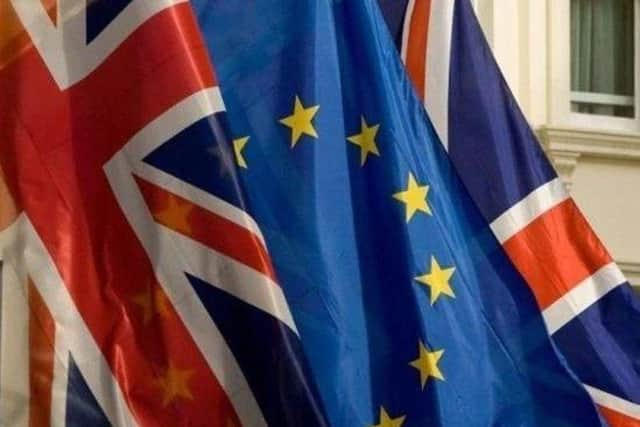Holidaying in Europe after Brexit


Is there any way of knowing if this is a sensible thing to do? Can we plan that far ahead? I anticipate problems with the exchange rate for spending money once there; possible issues with ferries and trains; and uncertainty regarding pet passports.
A: There's a number of issues to look at here. The most time sensitive one is the issue of a pet passport, as you'll need to start the process at least four months before you leave if the UK exits the EU without a deal.
Advertisement
Hide AdAdvertisement
Hide AdPet passports list the different treatments your pets have had and ensure they are microchipped and up to date with their rabies vaccine.


The passport means your dogs won't have to go into quarantine on arrival.
If the UK leaves without a deal, then the rules will change and pet passports issued in the UK would no longer be valid. In this case, pet owners would need to get a health certificate. Your dog will need a rabies vaccine with blood samples (to be sent to an EU-approved laboratory) taken 30 days after the jab. You will then have to wait three months after the samples come back clear to get the health certificate.
The best thing to do is contact your vet as soon as possible.
The second issue is that you will be driving.
Advertisement
Hide AdAdvertisement
Hide AdIf you want to drive abroad in the case of a no-deal Brexit then you will need an International Driving Permit. These are available at Post Offices across the country and cost £5.50. There are three available (1926, 1949 and 1968) depending on which country you are visiting and you may need both types if you are travelling through more than one country. In your case you will need a 1968 IDP to travel to France.
To apply for an IDP you will need a full valid UK driving licence - photocard or an older paper licence - a passport sized photo and an original valid passport as proof of identification, if presenting an older paper version licence. You can apply three up to months before you travel.
You'll also need a green card to prove you are fully insured.
The Association of British Insurers has said that if you travel without one, you may be breaking the law. Green cards - essentially just a paper document rather than an actual card - proves that the motorist has the necessary third-party motor cover. The new rules will affect anyone planning to take their vehicle to European countries after March 29. You will need to contact your insurer at least one month before travelling.
Advertisement
Hide AdAdvertisement
Hide AdWith regards to transport, Discover Ferries has said that Brexit will not affect the ability of ferries to sail between the UK and the rest of Europe regardless of a deal or no deal Brexit scenario.
They have addressed concerns about potential delays at ports due to additional customs checks at British ports, saying: "It should be noted that these additional checks apply mainly to the transportation of freight/commercial goods between Britain and the EU and not people looking to travel to Europe on holiday or for leisure purposes. We are confident that British passport holders travelling to Europe from the UK for leisure purposes should not experience many changes to the way they currently travel through the ferry ports.
"However, should a Brexit agreement with the EU not be reached, British travellers may be subject to a change in customs requirements, bringing them more in line with the restrictions and allowances that apply to individuals arriving from countries such as the United States of America. This could result in the need to declare some goods purchased in the UK, as well as restrictions on the ability to transport some food items into Europe from the UK."
They went on to say that contingency planning has been put in place, and it is also worth noting that by the time you travel in the summer, ports and organisations will have had several months to work out any kinks.
Advertisement
Hide AdAdvertisement
Hide AdThe UK government has also said it is seeking bilateral arrangements with France, Belgium, and the Netherlands, as well as Ireland, to continue the smooth functioning of cross-border rail services.
When it comes to cost, the pound is worth less against the Euro than it used to be. Before Brexit £1 would get you around 1.43 euros, but it currently stands at just 1.15. There's undoubtedly other factors in play rather than just Brexit, but there's honestly no way of knowing what will happen to the rate in the immediate months after we leave the EU.
It's up to you whether you buy Euros before or after March 29, but just make sure you shop around and ensure you're getting the best deal on the day you buy. After all, every penny helps.
Finally, don't forget to check the expiration date on your passport. If we leave the EU without a deal you will need to have six months left to travel. Any extra months added on when you renewed won't count either, meaning your passport should be no older than nine years and six months when you travel.
